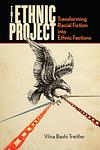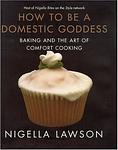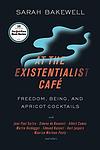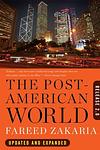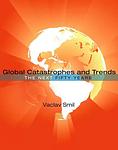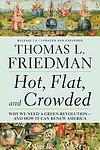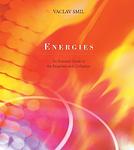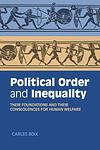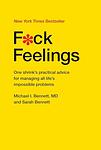The Greatest "Nonfiction" Books Since 1950
Click to learn how this list is calculated.
This list represents a comprehensive and trusted collection of the greatest books. Developed through a specialized algorithm, it brings together 300 'best of' book lists to form a definitive guide to the world's most acclaimed books. For those interested in how these books are chosen, additional details can be found on the rankings page.
Genres
Countries
Date Range
Reading Statistics
Click the button below to see how many of these books you've read!
Download
If you're interested in downloading this list as a CSV file for use in a spreadsheet application, you can easily do so by clicking the button below. Please note that to ensure a manageable file size and faster download, the CSV will include details for only the first 500 books.
Download-
1576. Age Of Fracture by Daniel T. Rodgers
This book delves into the late 20th century in America, a period marked by profound ideological and social fragmentation. It explores how the collective certainties that had defined the post-World War II era began to unravel, giving way to a more fragmented, individualistic, and market-driven society. Through a detailed examination of political, social, and intellectual trends, the narrative uncovers how ideas about power, gender, race, and the economy transformed. The author argues that this shift towards a more fractured society has had lasting impacts on American identity, culture, and politics, fundamentally altering the way Americans understand and engage with the world around them.
-
1577. Cassandra Speaks by Elizabeth Lesser
This book delves into the narratives that have shaped society's understanding of women and power, exploring how history's predominantly male voices have influenced our culture and consciousness. The author argues that the stories we have inherited about leadership, value, and strength are incomplete, and she proposes a reevaluation of traditional myths and tales through a more inclusive lens. By examining and reimagining these foundational stories, the book suggests that we can unlock a more equitable and empathetic world, where both women's experiences and feminine qualities are valued alongside the masculine, creating a more balanced and holistic approach to leadership and human interaction.
-
1578. Conquest Of The Useless by Werner Herzog
"Conquest of the Useless" is a reflective memoir that presents a collection of the author's diary entries written during the tumultuous production of a major film in the early 1980s. Set in the heart of the Amazon rainforest, the narrative captures the intense challenges faced by the film crew, ranging from logistical nightmares and clashing personalities to confrontations with nature and local cultures. The author's poetic and introspective prose delves into the emotional and existential upheavals experienced during the making of the film, revealing his relentless determination and the surreal experiences encountered in a remote and demanding setting.
-
1579. Changing My Mind: Occasional Essays by Zadie Smith
"Changing My Mind: Occasional Essays" is a collection of essays that explores a wide range of topics, from literature and film to politics and culture. The author shares her thoughts and insights on these subjects, often through the lens of her personal experiences and observations. The book offers a glimpse into the author's mind, showcasing her intellectual curiosity, critical thinking skills, and unique perspective on the world.
-
1580. The Ethnic Project by Vilna Bashi Treitler
The book in question explores the complex dynamics of race and ethnicity in the United States, examining how various immigrant groups have navigated and shaped their identities within the country's racial hierarchy. It delves into the historical and sociological processes that have led to the assimilation of certain ethnic groups into the category of "whiteness," while others remain marginalized. Through a critical analysis of these ethnic projects, the book reveals the strategies employed by different groups to gain social acceptance and economic mobility, and how these efforts have contributed to the perpetuation of racial inequalities. The narrative challenges readers to reconsider the constructs of race and ethnicity and their impact on American society.
-
1581. How to Be a Domestic Goddess: Baking and the Art of Comfort Cooking by Nigella Lawson
This book is a comprehensive guide to comfort cooking and baking, designed to instill confidence in even the most novice of home cooks. The author shares a variety of recipes and techniques, from simple cookies to elaborate cakes and pies, all with a focus on creating comforting, home-made meals. The book emphasizes the joy and satisfaction that comes from cooking and baking, and encourages readers to embrace the role of a domestic goddess in their own kitchens.
-
1582. In The Darkroom by Susan Faludi
In "In the Darkroom," Susan Faludi explores the complex relationship with her father, who underwent gender reassignment surgery and became Stefanie Faludi. Through interviews, personal anecdotes, and historical research, Faludi delves into her father's past as a Hungarian Holocaust survivor, her own upbringing, and the challenges of navigating a new relationship with a parent who has undergone such a drastic transformation. The book is a powerful exploration of identity, family, and the intersections of gender and history.
-
1583. At The Existentialist Café: Freedom, Being, And Apricot Cocktails by Sarah Bakewell
"At The Existentialist Café" is a non-fiction book that explores the lives and ideas of a group of philosophers known as the existentialists. The book takes readers on a journey through the cafes of Paris in the 1930s and 40s, where philosophers such as Jean-Paul Sartre, Simone de Beauvoir, and Maurice Merleau-Ponty would gather to discuss their ideas about freedom, being, and the meaning of life. Bakewell weaves together their personal stories, philosophical theories, and the historical context in which they lived, to create a compelling and accessible introduction to existentialism.
-
1584. 13 Things That Don't Make Sense by Michael Brooks
This book delves into the mysteries and anomalies that challenge our current understanding of science, presenting a thought-provoking exploration of thirteen phenomena that defy explanation by contemporary scientific theories. From the puzzling behavior of the placebo effect to the unaccounted for 'dark matter' that fills the universe, the author navigates through a range of topics that span across various disciplines including biology, physics, and astronomy. Each chapter is dedicated to a different 'thing' that doesn't make sense, inviting readers to ponder the limitations of human knowledge and the potential for future scientific breakthroughs. The book serves as a compelling reminder of the mysteries that remain unsolved and the ongoing quest for knowledge.
-
1585. Stasiland by Anna Funder
This non-fiction work delves into the haunting legacy of the Stasi, the secret police of the former East Germany, through a series of personal narratives and interviews. The author explores the pervasive surveillance and oppression that characterized the German Democratic Republic, weaving together the stories of those who resisted the regime, those who worked for it, and those who were its victims. The book serves as a poignant examination of the human spirit under the strain of totalitarianism, revealing the scars left by a society where privacy was eradicated and trust was a commodity few could afford.
-
1586. The Post American World by Fareed Zakaria
This book explores the shifting landscape of global power, emphasizing the rise of countries like China and India, and the relative decline of American dominance in economic, political, and cultural terms. The author argues that we are transitioning into a "post-American" world, where the United States will remain a vital player but will no longer hold unrivaled supremacy. Through insightful analysis, the book examines the implications of this shift for international relations, global governance, and the global economy, advocating for a new approach to American foreign policy that embraces this multipolar reality. The narrative is both a wake-up call and a guide for navigating the complexities of the 21st century's international dynamics.
-
1587. Sustainable Energy by David J.C. Mackay
This book offers a comprehensive exploration of the potential for sustainable energy sources to replace fossil fuels, addressing the technical, practical, and environmental challenges involved. The author meticulously quantifies the capabilities of various renewable energy sources, such as wind, solar, and bioenergy, in meeting the world's energy demands in a sustainable manner. Through clear, accessible analysis, the book dispels myths surrounding renewable energy and emphasizes the importance of a balanced approach that includes energy conservation, efficiency, and the development of a diverse mix of renewable energy sources to achieve a sustainable energy future.
-
1588. Global Catastrophes And Trends by Vaclav Smil
This book provides a comprehensive analysis of the major natural and human-induced disasters and trends that have the potential to significantly alter the course of human civilization. It delves into a wide array of topics, from environmental degradation and climate change to the risks of nuclear warfare and pandemics, offering a detailed examination of their causes, impacts, and the likelihood of their occurrence. The author meticulously assesses the probability and severity of these global challenges, combining scientific research with historical context to evaluate how they might shape the future. Through a blend of rigorous analysis and insightful commentary, the book aims to enhance our understanding of the complex dynamics that govern our world and the potential pathways to mitigate these global risks.
-
1589. Tomorrow's Table by Pamela C. Ronald
This book bridges the divide between genetically modified foods and organic farming, arguing that a combination of both approaches is essential for sustainable agriculture. It presents a compelling case for integrating genetic engineering and organic farming practices to enhance crop yield, reduce pesticide use, and ensure food security in the face of climate change. Through a blend of scientific research, personal anecdotes, and practical insights, the book challenges common misconceptions and demonstrates how the convergence of these two methodologies can lead to healthier and more environmentally sustainable food systems.
-
1590. Money Well Spent by Paul Brest, Hal Harvey
This book serves as a comprehensive guide for philanthropists and foundations who aim to maximize the impact of their giving. It outlines a strategic approach to philanthropy that emphasizes the importance of setting clear goals, choosing effective strategies, and measuring outcomes to ensure that donations lead to meaningful and sustainable change. Through a combination of theory, practical advice, and real-world examples, the authors provide readers with the tools they need to make informed decisions about their charitable investments, ultimately making their philanthropy more effective and fulfilling. The book challenges traditional notions of giving and encourages donors to think critically and strategically about how they can use their resources to address some of the world's most pressing problems.
-
1591. Why Men Love Bitches by Sherry Argov
The book is a relationship guide that challenges conventional notions of what it means to be a "nice girl" and proposes that women who are assertive, independent, and self-confident are more attractive to men. It provides advice on how women can transform their dating life by setting boundaries, maintaining a sense of mystery, and cultivating an air of confidence. The author argues that by prioritizing their own needs and refusing to be taken for granted, women can foster more balanced, respectful, and fulfilling relationships with men.
-
1592. Hot, Flat, And Crowded by Thomas L. Friedman
This book delves into the complex interplay between global warming, globalization, and population growth, arguing that the convergence of these three forces has created a world that is 'hot, flat, and crowded.' The author emphasizes the urgent need for a green revolution, advocating for the United States to lead the way in adopting more sustainable energy practices and technologies. Through a mix of reporting, analysis, and advocacy, the book presents a compelling case for how embracing green energy not only addresses environmental challenges but also can drive economic growth and maintain the country's competitive edge in the global market.
-
1593. Brain Rules by John Medina
This book explores the intricacies of how the human brain works, particularly in relation to learning and functioning in our daily lives. It delves into 12 fundamental principles, or "rules," that govern our understanding of brain science, such as the importance of exercise, sleep, and stress management in enhancing cognitive abilities. The author, a molecular biologist, uses a blend of research and practical advice to demonstrate how these principles can be applied to improve education, work, and personal development. By bridging the gap between scientific theory and everyday life, the book offers insightful perspectives on optimizing brain health and performance.
-
1594. Energies by Vaclav Smil
This book provides a comprehensive exploration of the various forms of energy that power the planet, from traditional fossil fuels to renewable sources like wind and solar power. The author delves into the scientific principles underlying energy conversion, storage, and transmission, offering insights into the complexities of energy systems and their impacts on the environment and society. Through a detailed analysis, the book presents a balanced view on the challenges and opportunities of transitioning to a more sustainable energy future, emphasizing the need for informed policy decisions and technological innovations.
-
1595. The Content of Our Character by Shelby Stelle
This book is a thought-provoking exploration of race relations in America. The author, an African-American scholar, shares a series of personal reflections, anecdotes, and analyses to challenge both liberal and conservative dogmas about race. He argues that self-help, self-esteem, and self-reliance are the keys to solving many of the problems in black communities, and criticizes the culture of victimhood that he believes undermines these values. The book also examines the role of race in education, employment, and criminal justice, providing a nuanced and balanced perspective on these complex issues.
-
1596. Big Bang by Simon Singh
The book explores the history of the universe from ancient cosmological theories to the modern Big Bang theory. It delves into the lives and discoveries of key scientists who contributed to our understanding of the cosmos, including Albert Einstein, Edwin Hubble, and George Gamow. The narrative combines scientific detail with engaging storytelling, explaining complex concepts in an accessible manner. The book also addresses the ongoing debates and experiments in cosmology, providing a comprehensive overview of how the current consensus on the origin of the universe was formed and what questions remain unanswered.
-
1597. The Unnatural History Of The Sea by Callum Roberts
This book provides a comprehensive exploration of the impact of human activity on the oceans through the lens of history, tracing the changes in marine life and ecosystems from abundant pasts to depleted presents. It delves into the historical overexploitation of ocean resources, beginning with the earliest forms of fishing and whaling, and moving through to the industrial fishing practices of the modern era. The narrative is a compelling account of how human endeavors have led to significant declines in marine biodiversity and the health of ocean ecosystems, offering insights into the consequences of unchecked exploitation. Additionally, it presents a call to action, emphasizing the urgent need for sustainable management practices and conservation efforts to restore the oceans' health and ensure their vitality for future generations.
-
1598. Political Order And Inequality by Carles Boix
This book delves into the intricate relationship between political dynamics and social inequalities, offering a comprehensive analysis of how political institutions shape economic disparities and vice versa. The author argues that the formation of political order and the distribution of resources within a society are deeply interconnected processes, influenced by historical events, economic pressures, and power struggles. Through a detailed examination of various political systems and historical contexts, the book presents a theoretical framework for understanding the mechanisms through which political stability and inequality are mutually reinforced, suggesting that the path to a more equitable society lies in the careful restructuring of political institutions to address the root causes of inequality.
-
1599. If The Universe Is Teeming With Aliens ... Where Is Everybody? Second Edition by Stephen Webb
This book explores the Fermi Paradox, the apparent contradiction between the high probability of extraterrestrial life in the universe and the lack of evidence for, or contact with, such civilizations. Through a comprehensive examination of various scientific theories and hypotheses, the text delves into potential reasons why humanity has yet to discover signs of alien life. It covers a wide range of topics, from the conditions necessary for life to evolve, to the possibilities of interstellar travel, and the implications of the paradox for the future of human exploration and understanding of the cosmos. The book is both an informative guide for those curious about the possibilities of life beyond Earth and a thoughtful exploration of the challenges facing the search for extraterrestrial intelligence.
-
1600. F*Ck Feelings by Sarah Bennett, Michael Bennett
This self-help book takes a pragmatic and humorous approach to managing life's inevitable challenges and emotional struggles. It argues against the popular notion that we should always trust our feelings, instead suggesting that we focus on setting realistic goals and accepting our limitations. With a blend of tough love and irreverent wit, the book offers guidance on a variety of topics, from relationships and parenting to work and self-esteem, providing readers with actionable advice on how to deal with life's imperfections and find satisfaction without chasing unattainable ideals of happiness and success.
Reading Statistics
Click the button below to see how many of these books you've read!
Download
If you're interested in downloading this list as a CSV file for use in a spreadsheet application, you can easily do so by clicking the button below. Please note that to ensure a manageable file size and faster download, the CSV will include details for only the first 500 books.
Download



